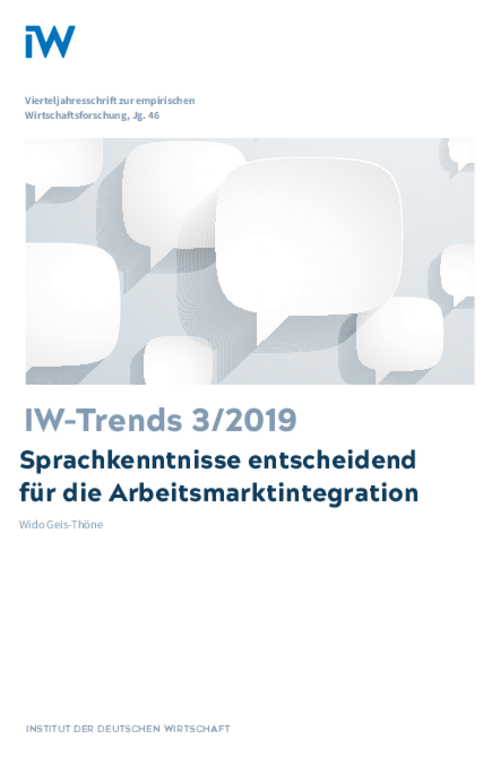Unlike their level of formal education, it is very difficult to monitor immigrants' German language skills and there is always a degree of uncertainty about their measurement. For this reason, the relationship between language skills and wages and unemployment was analysed using three different sets of data.

Language Skills the Key to Labour Market Integration
IW-Trends

Unlike their level of formal education, it is very difficult to monitor immigrants' German language skills and there is always a degree of uncertainty about their measurement. For this reason, the relationship between language skills and wages and unemployment was analysed using three different sets of data.
In the National Education Panel and the PIAAC study, knowledge of German was measured using standardised tests, ensuring good comparability and accuracy of data. However, recent immigrants are not included in these datasets. The Socio-Economic Panel does cover the newly arrived, but only contains self-assessments of their language level. The National Educational Panel and the Socio-Economic Panel fail to find any wage differences between immigrants and natives when language skills and formal educational attainment are controlled for. In the PIAAC study, wage differences are so small as to be of scarce practical relevance. For unemployment there is no uniform picture. However, here too the results suggest that language skills are a decisive factor. On average, highly qualified immigrants perform better in the German tests than the low-skilled without a migration background. Language problems are therefore not exclusive to members of migrant families. In certain cases the indigenous population would also benefit from courses in basic literacy to improve their language skills.

Wido Geis-Thöne: Sprachkenntnisse entscheidend für die Arbeitsmarktintegration
IW-Trends

More on the topic

German Wage Policy between Inflation and Stagnation: Are Conflicts with the Aims of Monetary Policy Looming?
After the economic and financial crisis of 2008/9, the German labour market soon began to recover, creating scope for a comparatively expansive wage policy.
IW
Orphaned executive chairs in German companies
In 2023, half of the companies in Germany reported increasing problems in filling vacancies for management positions because employees are not aiming for a career. Larger companies are less affected than small companies.
IW